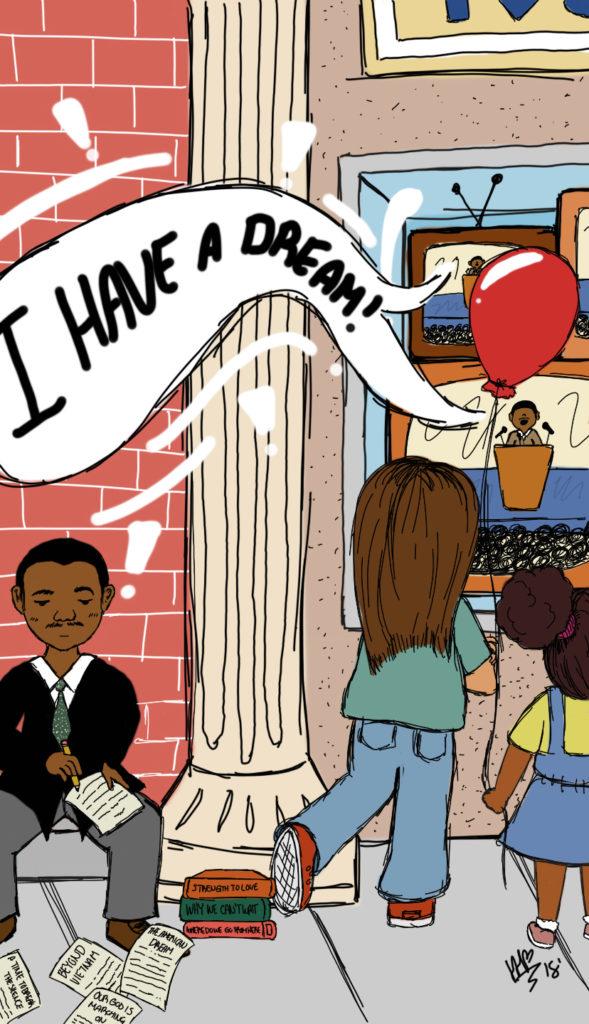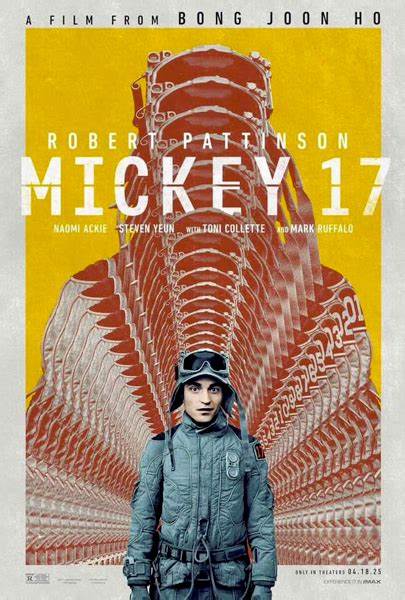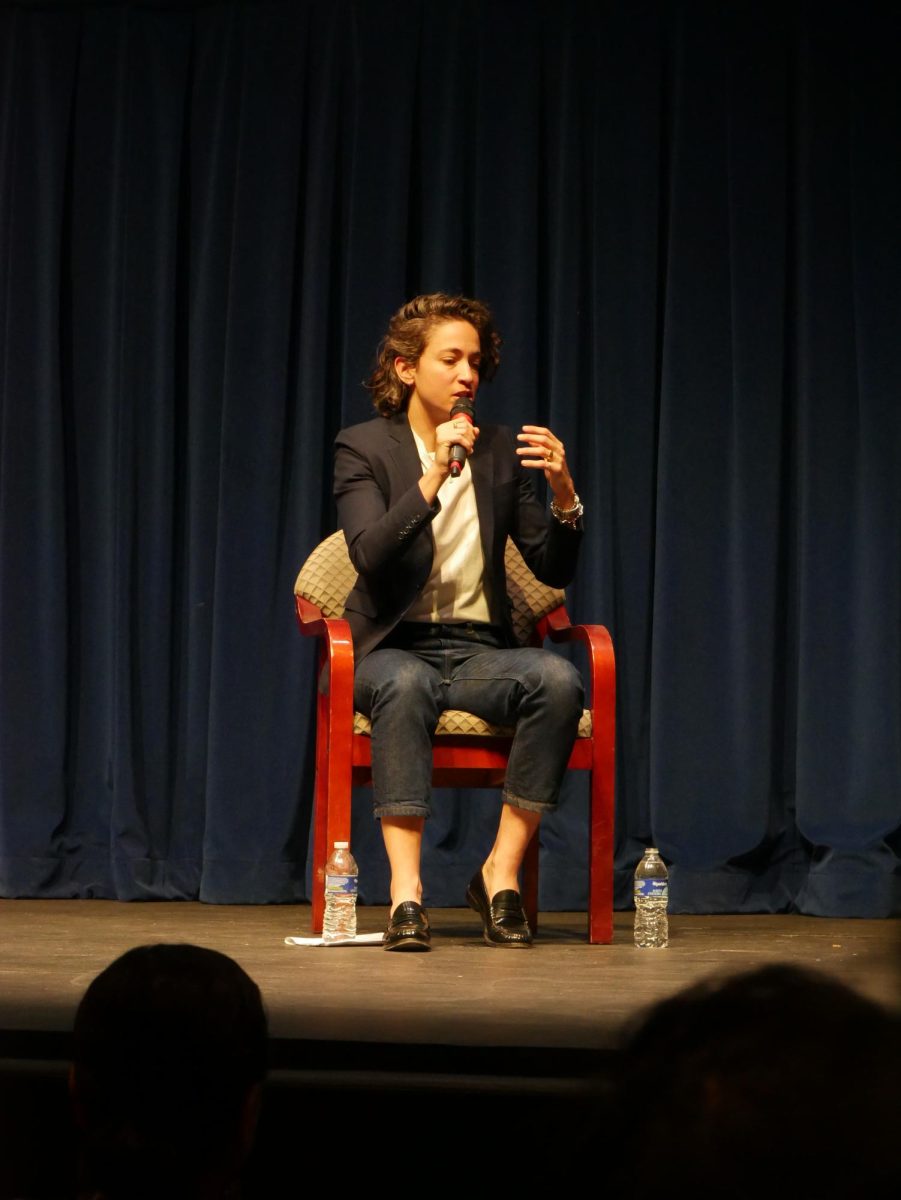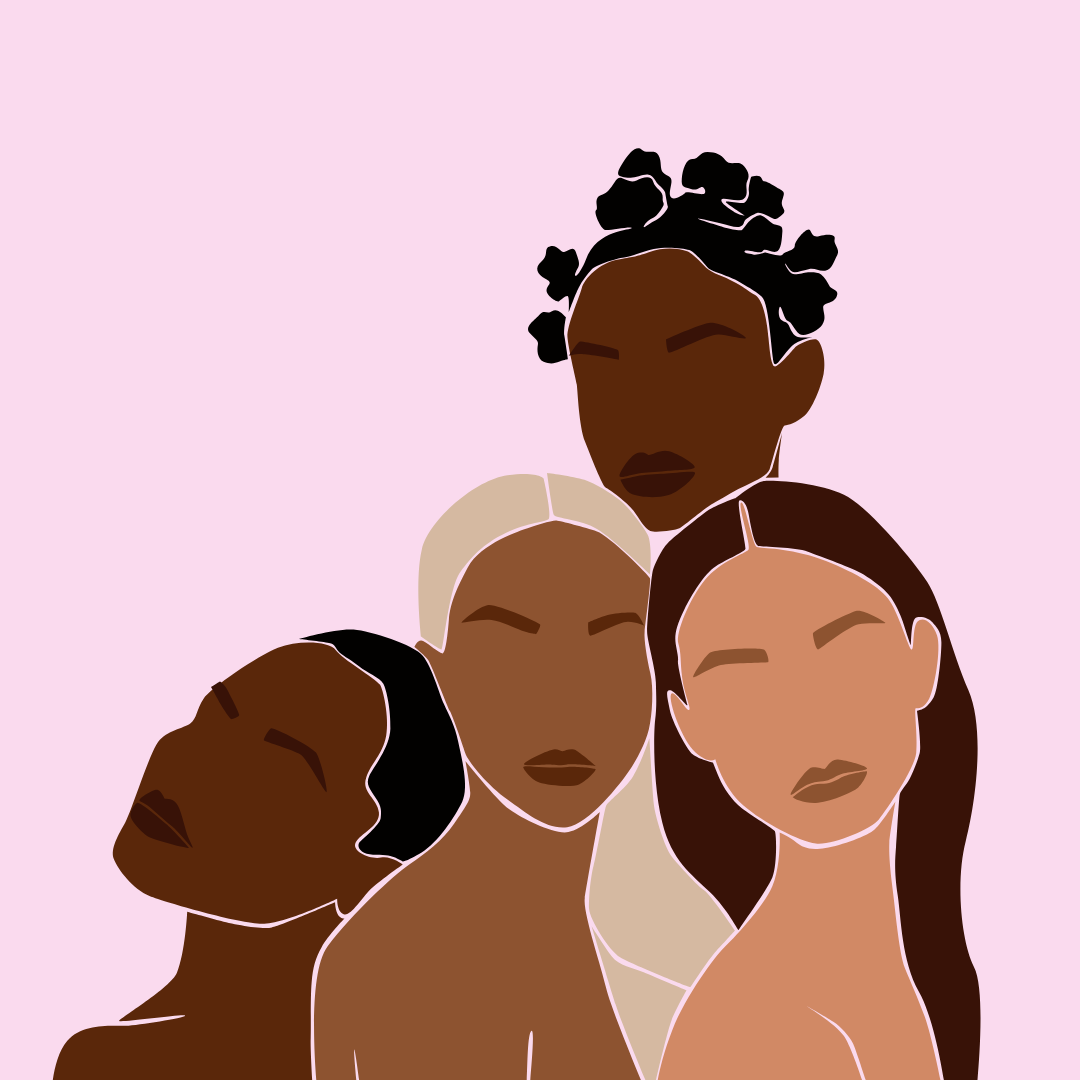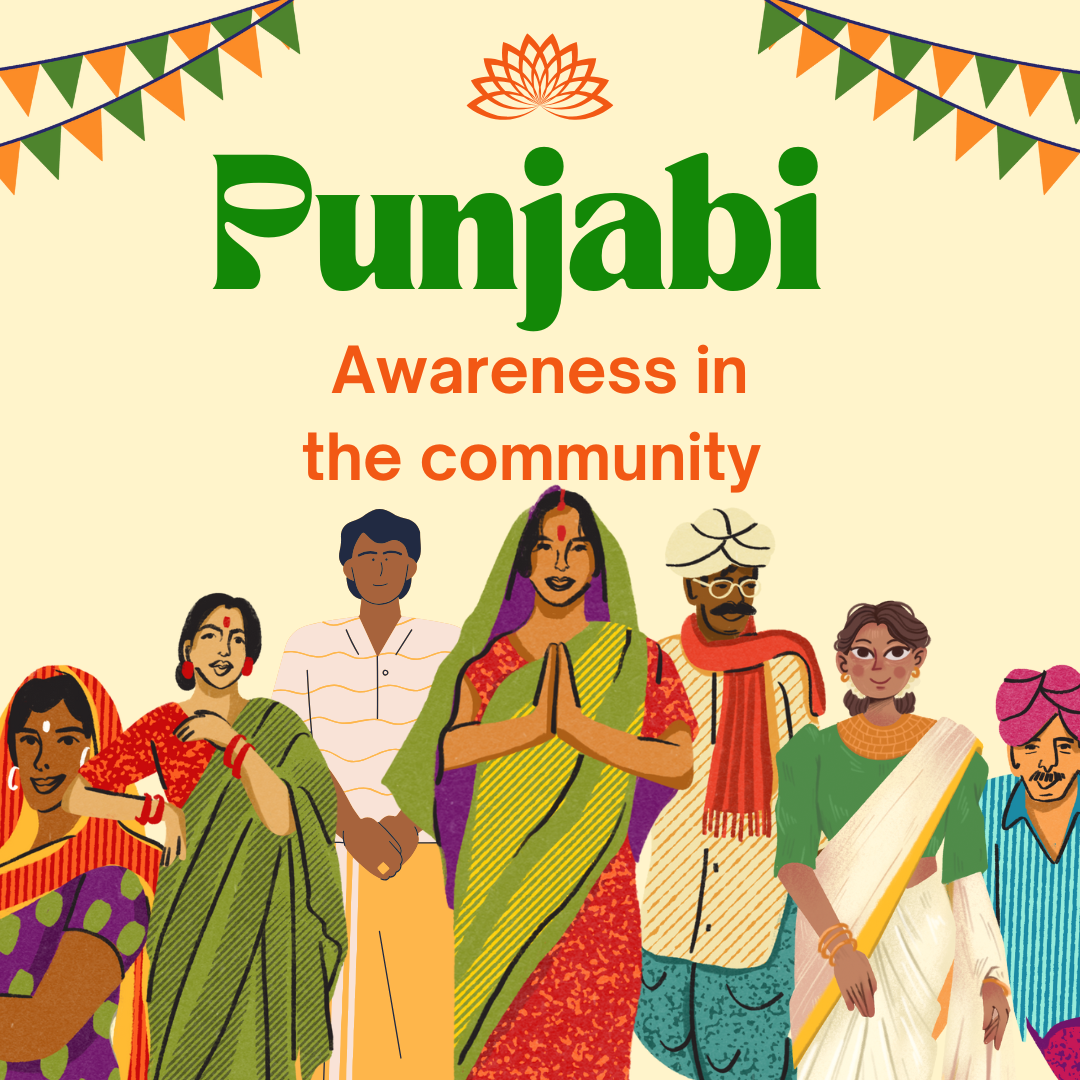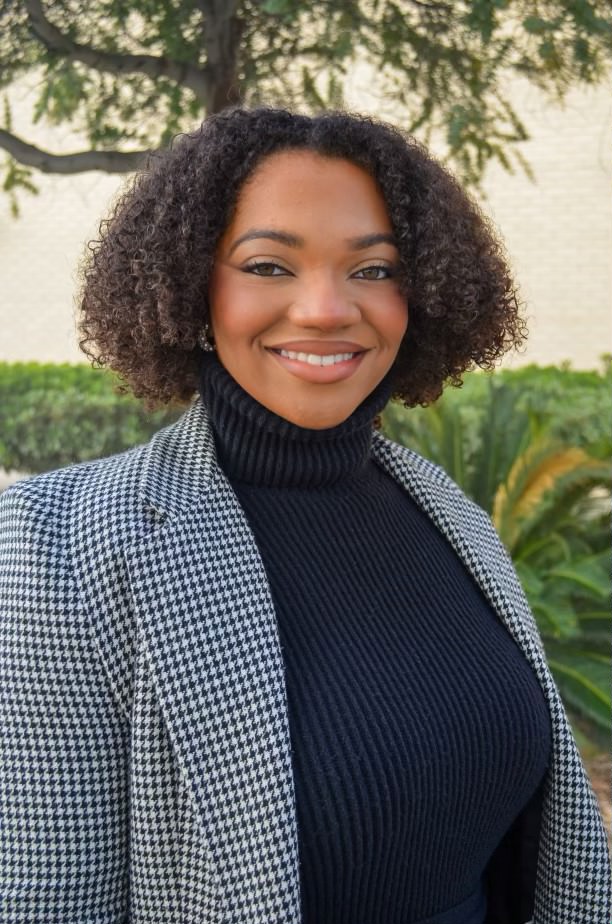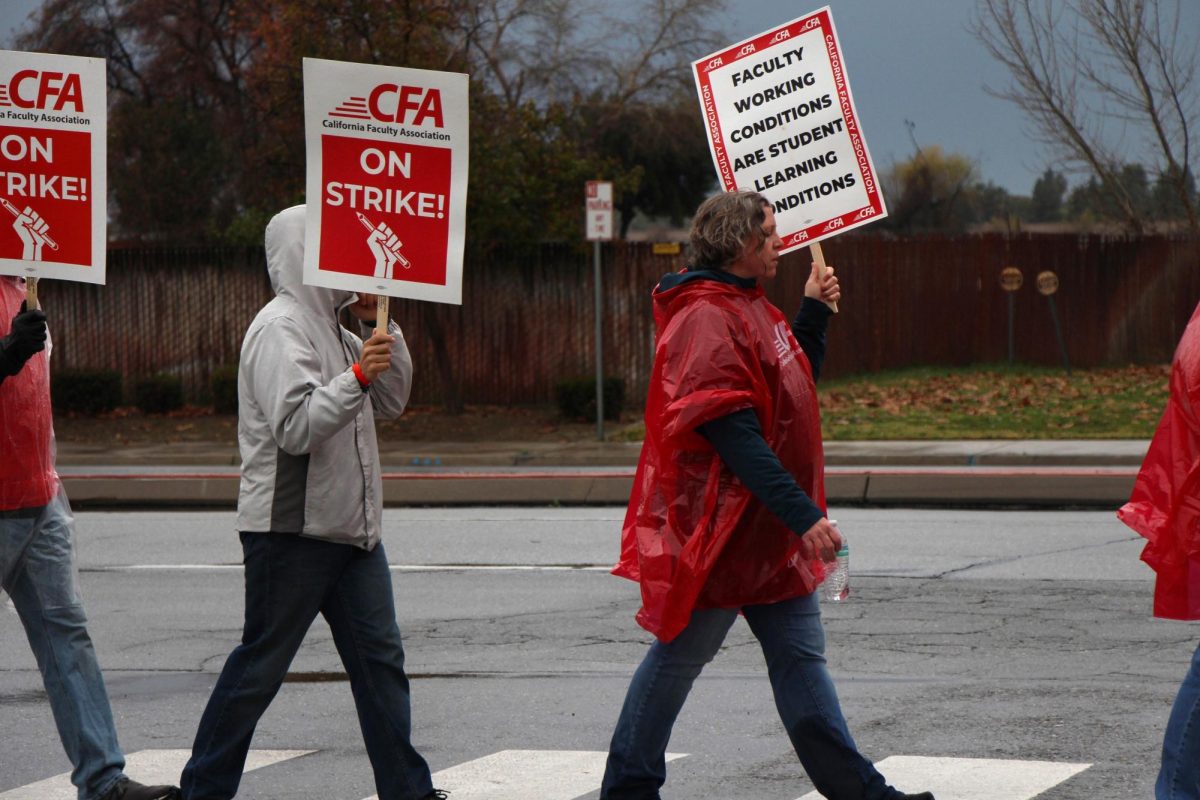By Norma Hernandez
Reporter
Rev. Martin Luther King Jr.’s legacy lives strong, fifty years after his assassination. Through advocacy, speeches, and a dream, Dr. King is remembered as one of the leading activists during the civil rights movement.
The, “I Have a Dream,” speech is often cited, but Dr. King additionally gave 450 speeches per year and published five books regarding issues such as race in relation to economic inequality.
“Where Do We Go From Here: Chaos or Community?” was a speech of Dr. King’s that was later turned into a book in 1967.
“That is all about economic inequality and that’s something that he was trying to get a lot of Americans and a lot of civil rights leaders interested in that, ‘yes rights for African Americans and equality for African Americans is important, but there’s a major structural problem of economic inequality as well,’” explained Dr. Marie Stango, history professor for CSU, Bakersfield.
In 1967, Dr. King gave a speech about the Vietnam War called “Beyond Vietnam: A Time to Break the Silence”.
“He’s one of the first major figures to publicly condemn U.S. action in Vietnam,” said Stango.
Dr. King criticized the U.S. government for sending people of color to another country to fight for democracy, when in the U.S. they were not truly free themselves.
In the speech, “Beyond Vietnam,” Dr. King said, “We are taking the black young men who had been crippled by our society and sending them 8,000 miles away to guarantee liberties in Southeast Asia, which they had not found in Southwest Georgia and East Harlem.”
Dr. Alem Kebede, sociology professor at CSUB, said that people of color were not allowed to be in the same schools or public areas with white Americans in the U.S., but were permitted to die together outside of the U.S.
“[It’s] a form of integration when it comes to fighting external enemies, but segregation here in the United States,” said Kebede.
Not only did Dr. King dislike the social injustice, but he also disapproved of the U.S. government spending so much attention, resources, and money on the military, rather than fixing domestic problems.
Kebede said that another one of Dr. King’s convictions in the Vietnam speech was that programs in the U.S. were being ignored.
When the majority of the money is going towards military operations, there isn’t much left to fix the problems in the U.S.
Dr. Ivy Cargile, political science professor at CSUB, said that this was one of the reasons why the Black Panthers arose.
“The reason the Black Panthers, who are so controversial today, got started was because they started in Oakland as a provider of food for young black children who could not get fed at home because parents didn’t have the money,” said Cargile.
“Beyond Vietnam” is not only a powerful speech, but it was one of the riskiest speeches Dr. King gave because he was speaking against the majority opinion.
Another one of Dr. King’s memorable speeches was the “Mock Eulogy” speech he gave in 1963.
In this speech, Dr. King referred to Andrew Young, a civil rights activist, and provided a new perspective to those against the civil rights movement.
“…Lord, white folks made a big mistake today… They killed the wrong Negro… Of all my associates, no one loved white folks as much as Andy,” said Dr. King.
Kebede said that Young was a human rights activist and was advocating for everyone’s rights and freedoms, including white Americans with low socio-economic status.
The message of this speech was about equality for all, regardless of race, and it spoke to those who did not realize the intersectionality of the civil rights movement.
Thus, it would go against one’s interest in killing a human activist.
Among all, Dr. King’s, “I Have a Dream,” speech continues to be very special for many Americans.
One of the reasons it is so famous is because it was the first of its kind where thousands of people gathered together for a cause.
“You had a huge conglomerate of people going to Washington D.C. to listen to it,” said Cargile, “and you for once had this massive unification of Americans who were pro-human rights [that got] together and really showed the power structure ‘we are here and we’re a force to be reckoned with.’”
It was the moment and the people that made this speech unique.
Dr. King’s, “I Have a Dream,” speech is especially memorable for the reason that most people want to have a positive image of their heroes, and the Dream speech gave a pacified version of Dr. King.
People don’t want to remember his more controversial side, but people forget that at the time, even during the march, numerous people disapproved.
“Over 60 percent of Americans did not approve of King or his message [and] that is so different than how we view King today,” said Stango.
There were some African Americans who also did not like Dr. King.
“Some black people were very explicit about making sure that people knew ‘I’m not that kind of black’,”
said Cargile.
Dr. King was so controversial that the FBI investigated him to ensure he wasn’t affiliated with the Communist party.
Dr. King’s years of advocacy work is still relevant today in 2018.
“Considering the political climate that we live in, a lot of the work that he has done has taken a step back. All of a sudden it’s okay to be racially [biased] towards people and use racial slurs towards people which is really unfortunate,” said Delfina Duarte, a master’s student in social work.
There aren’t many people who would speak out against their own government and put their lives at risk, even today.
“[People] should think of him as a
very courageous person because he had an option. He had a PhD [and] he could have been a good professor in one of those famous universities, but he [abandoned] all that and he decided to go through this route,” said Kebede.
Dr. King’s dream was more than people of color using the same bathrooms as white Americans, but having economic equity for all Americans.
“It’s very unfortunate that his other speeches haven’t, other than the ‘I Have a Dream’ speech, been given more attention because the messages were very poignant and very relevant,” said Cargile.


